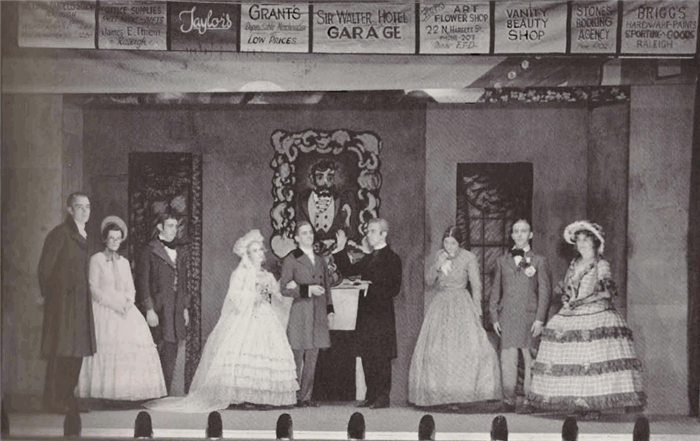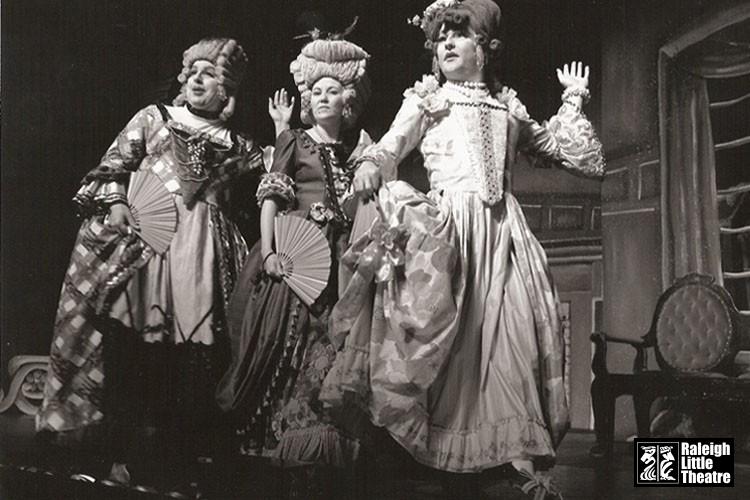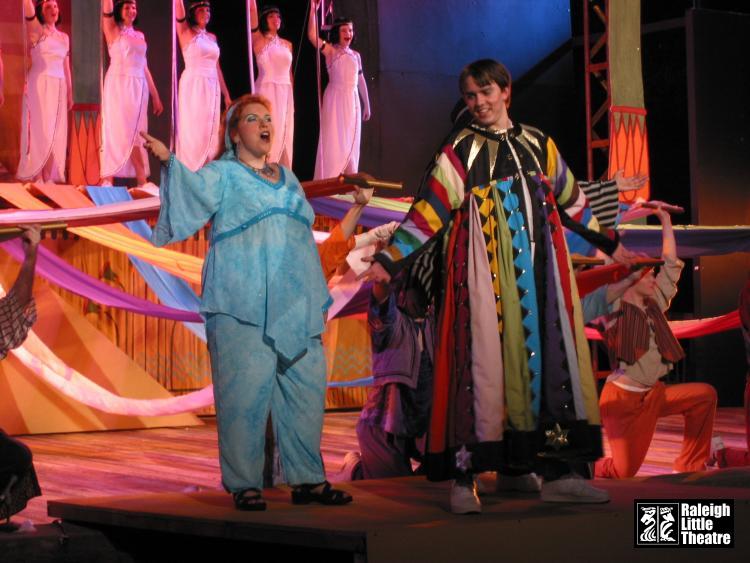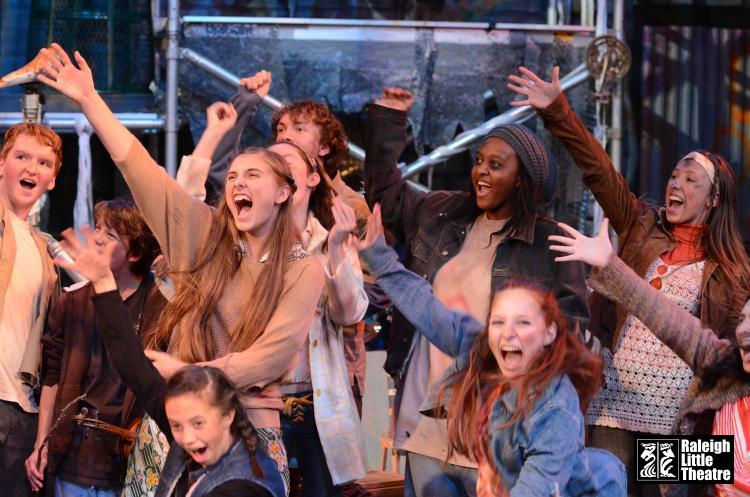The Raleigh Little Theatre campus, including the Stephenson Amphitheatre and Raleigh Rose Garden, sits on land belonging to the Lumbee and Tuscarora tribes.
In 1936, a group of passionate local performers joined forces with technical workers from the Federal Theatre Project to begin a community theatre in Raleigh, joining a nation-wide movement of little theatres focused on intimate, non-commercial theater.
Civic leader Cantey Venable Sutton pushed through bureaucratic red tape and galvanized the federal Works Progress Administration construction of the initial campus, which included a 300-seat proscenium theater, 2,000-seat outdoor amphitheater, and a Rose Garden.

The Drunkard, RLT’s first production, 1936
In 2000, the original theater was renamed in honor of Mrs. Sutton. RLT’s annual performance awards, given each June, have been called “Canteys” in her honor for decades.
RLT’s founding united the spirit of the Little Theatre Movement with the mission of the Federal Theatre Project, which aimed to employ artists, create relevant art, and provide entertainment for low-income families. This commitment to accessibility defined the organization early on and continues today, with a focus on keeping ticket prices affordable, choosing accessible while challenging theatrical works, and opportunities for anyone in the community to be involved by getting on stage or working behind the scenes.

Cinderella, 1986
While Raleigh has grown by leaps and bounds over the last 80+ years, RLT has grown as well. In the 1960s a scene shop and dressing rooms were added on to the initial theater footprint to enable staff and volunteers to increase production capacity.
In the 1980s, a 150-seat black box, the Gaddy-Goodwin Teaching Theatre, was built to provide additional training opportunities for emerging artists. Around this time, the theater began an education program.
In the late 1990s, a lobby was added to the Cantey V. Sutton Theatre to enhance the patron experience, and a number of renovations upgraded the outdoor amphitheater.

Joseph And The Amazing Technicolor Dreamcoat, RLT Amphitheatre, 2002
Though a student or actor going on to become a professional in the performing arts is not the primary mission of RLT, a number of performers have gone on to acclaimed careers. Andy Griffith performed at RLT multiple times, including in a revival of “The Drunkard” in the 1951-52 season.
Other notable performers and alumni include Randy Jones (later the cowboy in The Village People), Clay Aiken (platinum-selling recording artist), Anthony Roth Costanzo (made his debut as Prospero in “The Enchanted Island” at the Metropolitan Opera in 2012), and Laurel Harris (Elphaba in the national tour of “Wicked”).
Many other performers have found rewarding experiences in the theater, made lifelong friends, and been challenged to grow creatively and technically in their time at RLT.

Runaways, RLT Teens on Stage Production, 2015
The education program was recognized with the 2002 Constance Welsh Theatre for Youth Award by the North Carolina Theatre Conference (NCTC). RLT was inducted in to the Raleigh Hall of Fame in 2007. In 2012, RLT received the Community Theatre Award from NCTC for the second time.
Writing for the News and Observer in 2014, Roy Dicks said “RLT is redefining what you can expect from a community theatre.” RLT has won a number of the Independent Weekly’s awards for Best Live Theatre, most recently in 2016 and 2017.
Read more about RLT’s history: Curtain Up! RLT’s First 50 Years